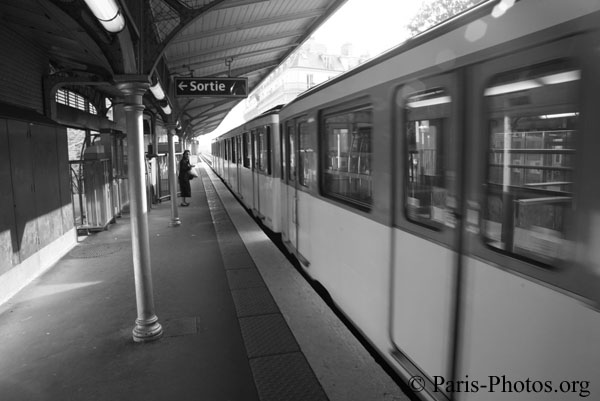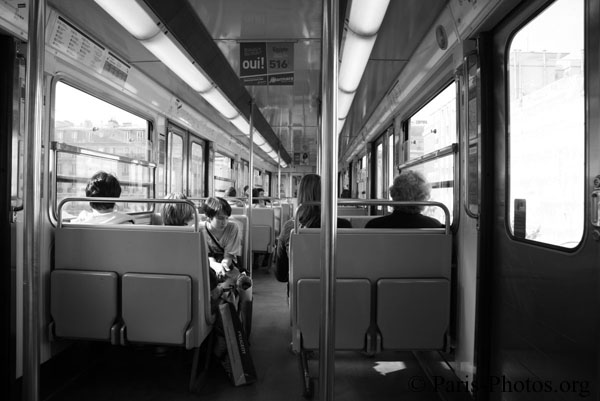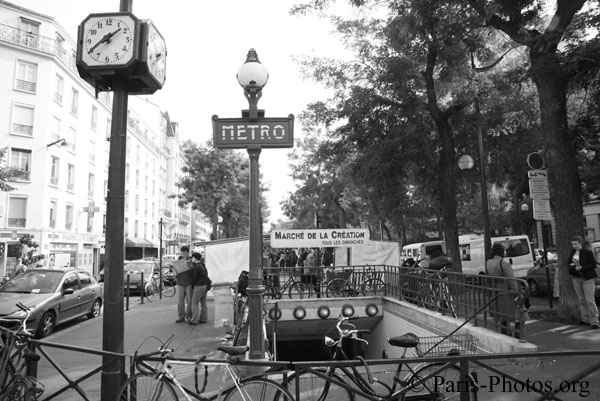
| Metropolitain
|
The Metro, nickname from Metropolitain, is the Paris public train transport. It is usefull for tourist and for inhabitants. You can go almost evrywhere in Paris thanks to the metro, without a car.
See the Metroof Paris map
|
| Leaving metro |

This picture was taken on Passy station, line 6. |
| Inside metro |

This picture was taken on line 6 in the outside part of the line. |
| Edgar Quinat station |

|
| More about Metropolitain
|
The Paris Métro (French: Métro de Paris) is the rapid transit system in Paris, France. It includes 16 lines, primarily underground, with a total route length of 211 km (131 miles). The system, which has become one of the symbols of Paris, is notable for the density of its network in central Paris, and for its homogeneous architectural style, influenced by Art Nouveau.
Lines are identified by numbers from 1 to 14, with two minor lines, 3bis and 7bis, numbered thus because they used to be branches of their respective original lines and only later became independent.
The initial line was inaugurated in 1900, during the Exposition Universelle world's fair. The system was expanded quickly to the outbreak of the Second World War, and the core of the Métro network was complete by the 1920s. The first extensions across the municipal boundary into adjacent suburbs were built during the 1930s. Line 11 was also created during this period. After a pause during the "automobile decades" (décennies voitures) of 1950-1970, several suburban extension were built. Technical decisions dating to the design of the original network, such as short distances between stations and small-profile trains, limit prospects for expansion. Additional transport capacity should be ensured by the growing tramway network and perhaps by expansion of the RER network developed from the 1960s. However, at the end of the 20th century, the Paris Métro inaugurated the fully automated Line 14, intended to relieve RER Line A.
Today, the Métro transports approximately 4.5 million passengers per day (1.365 billion for the year 2005). It serves 297 stations, of which 62 provide connections with another line.
The company which originally operated most of the network was known as Compagnie du chemin de fer métropolitain de Paris (Paris Metropolitan Railway Company) or CMP, shortened to "Métropolitain". Within its first years, that name was quickly abbreviated to Métro. The Métro today is operated by the Régie autonome des transports parisiens, a public transport authority that also operates part of the RER network, bus service in Paris and surrounding suburbs and tramway lines.
Text from Wikipedia
|
|